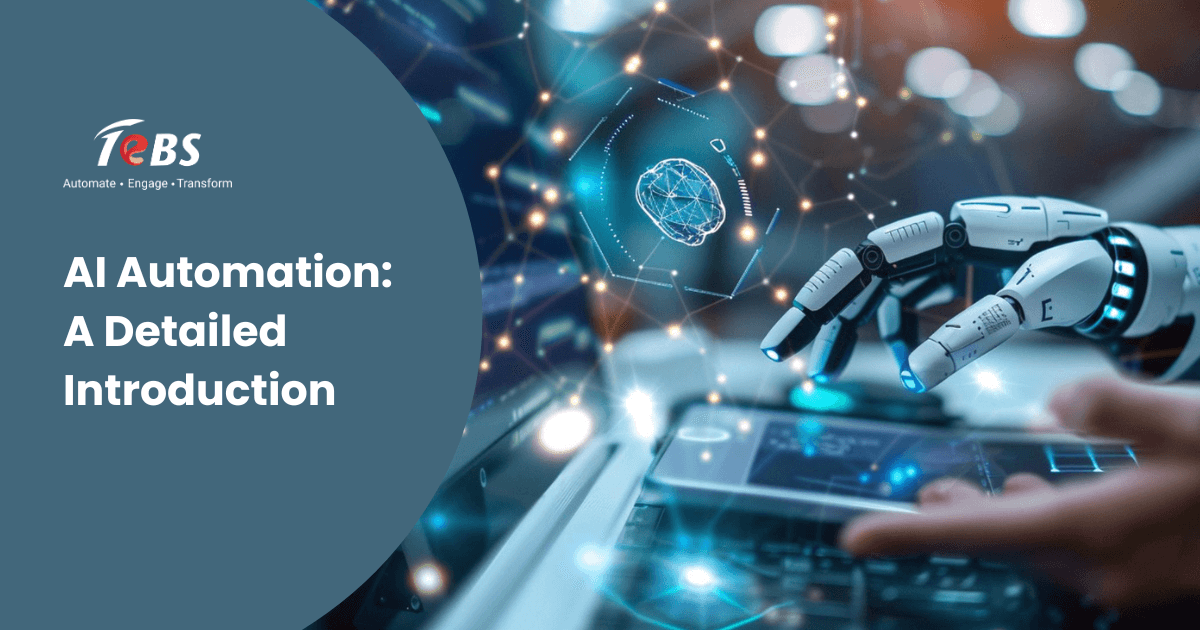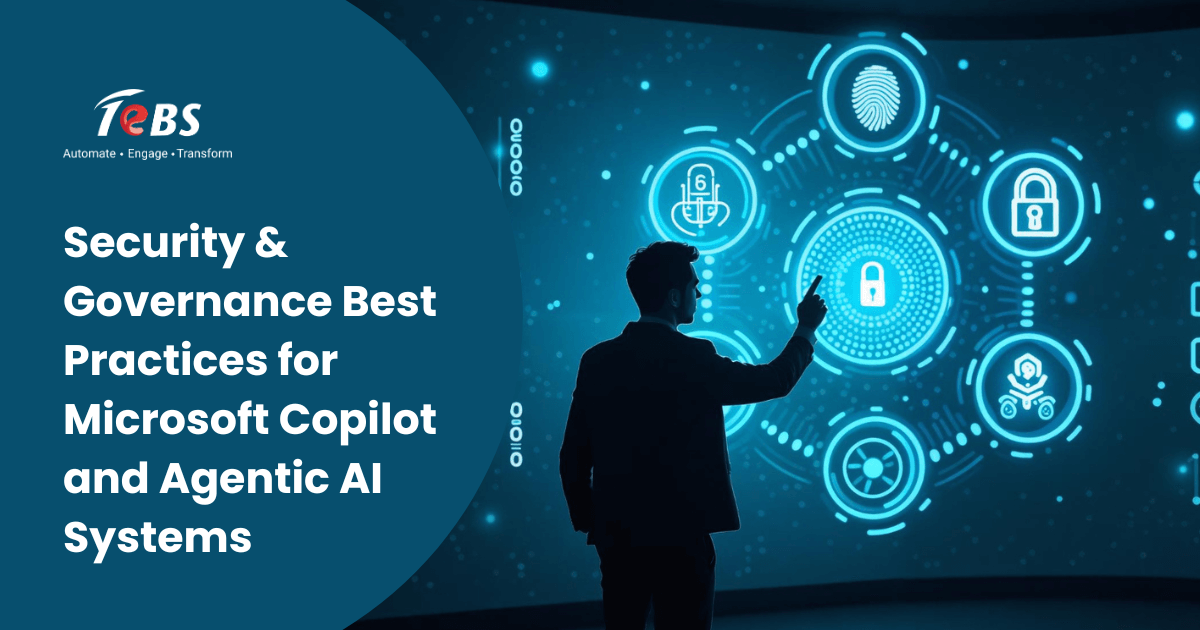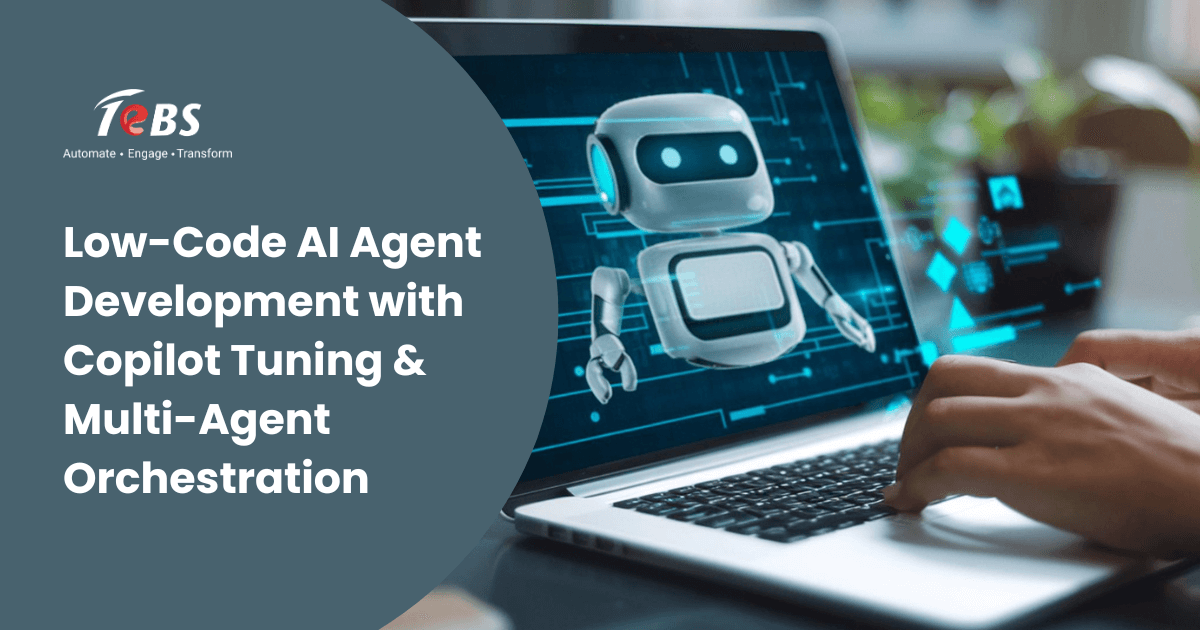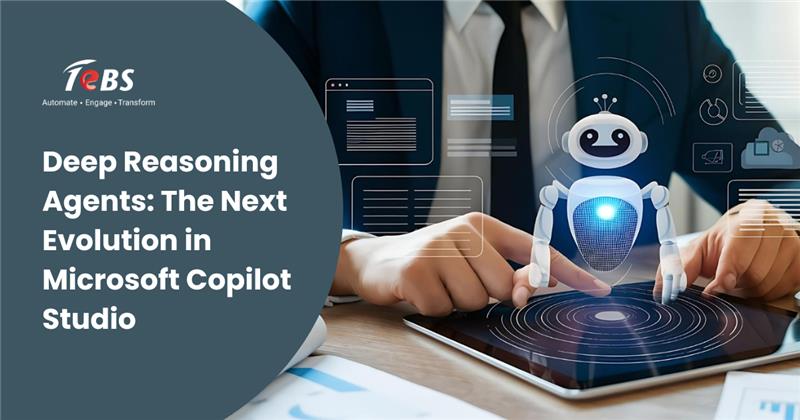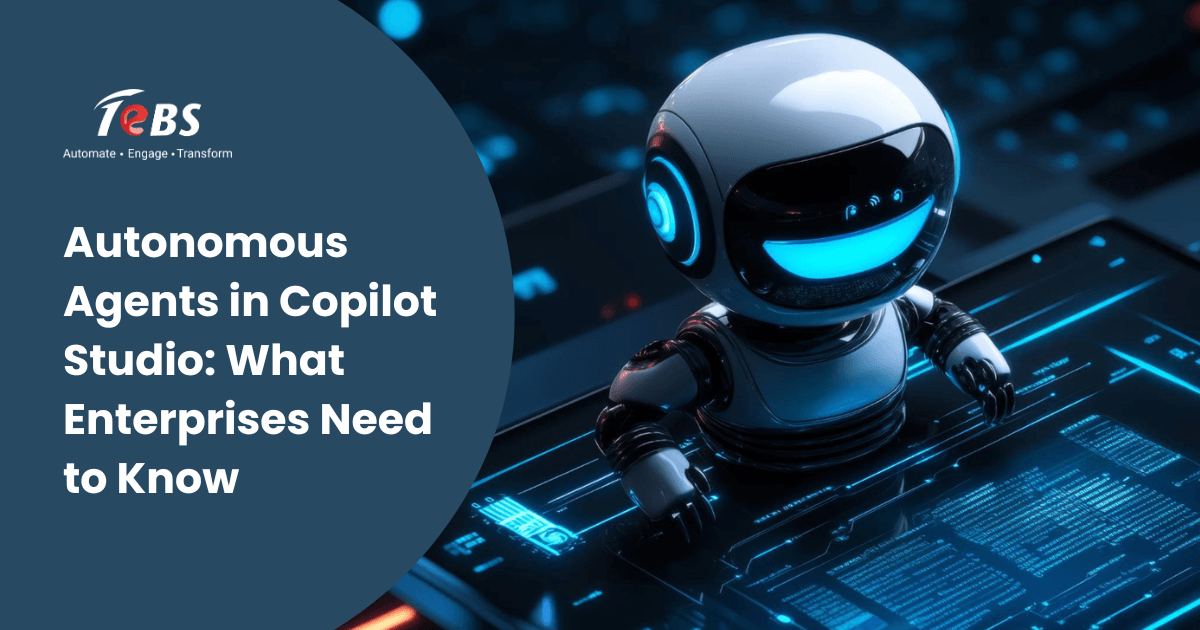Summary
Introduction
AI automation is transforming how businesses operate by combining the power of artificial intelligence with process automation. It enables organizations to streamline repetitive tasks, optimize operations, and make data-driven decisions at scale. This evolution goes beyond traditional automation, embedding intelligence into business workflows and creating systems that learn, adapt, and improve continuously.
As enterprises face increasing pressure to do more with less, AI automation becomes a strategic enabler of speed, efficiency, and innovation. From enhancing customer service to redefining internal operations, AI-driven automation offers measurable impact across every function of the organization. Explore how TeBS enterprise AI services help organizations embed intelligence into workflows and deliver measurable outcomes.
What is AI Automation
AI automation refers to the integration of artificial intelligence technologies into automated systems to perform tasks that typically require human intelligence. These tasks include decision-making, natural language understanding, pattern recognition, and learning from data.
Unlike traditional automation that follows fixed rules, AI automation enables systems to evolve based on new information, making them smarter and more adaptive over time. This results in processes that are not only faster but also more accurate and capable of handling complexity.
By leveraging AI automation, organizations can reduce operational costs, minimize human error, increase efficiency, and deliver better experiences to both customers and employees.
How AI Automation Works
AI automation works by combining multiple technologies—machine learning, data analytics, robotic process automation, and enterprise integration—to create intelligent systems that perform end-to-end tasks without constant human intervention. These components together form robust intelligent automation solutions that execute complex processes seamlessly.
Integration with Existing Systems
AI automation platforms are built to integrate with enterprise applications such as customer relationship management (CRM) systems, enterprise resource planning (ERP) software, and internal databases. This seamless integration allows data to flow smoothly between systems, ensuring accuracy and continuity in business processes.
APIs, data connectors, and middleware platforms enable this integration, allowing automation tools to access, update, and process data in real time without requiring significant changes to existing infrastructure.
Role of Machine Learning and Data Analysis
Machine learning is the core engine behind AI automation. It enables systems to learn from historical data, identify patterns, and make predictions. These models become more accurate over time as they are exposed to more data.
Data analysis supports this learning by processing vast amounts of structured and unstructured data. It allows the automation system to understand context, identify anomalies, and make intelligent decisions. This is powered by AI data analytics and business intelligence to surface insights and predictions. Whether it’s predicting customer behavior, detecting fraud, or forecasting demand, data analysis ensures that automation is not just reactive but also proactive.
As Microsoft highlights in its blog on AI agents at work: the new frontier in business automation, enterprises are already leveraging AI agents to scale workflows, reduce manual effort, and improve decision-making.
Types of AI Automation
AI automation can be categorized into different types based on the level of intelligence and complexity involved in the process. Two widely adopted types are Robotic Process Automation (RPA) and Intelligent Process Automation (IPA).
Robotic Process Automation (RPA)
RPA uses software bots to mimic human actions in structured digital environments. These bots can log into applications, move files, enter data, and perform other rule-based tasks with speed and accuracy.
RPA is especially useful for automating high-volume, repetitive tasks such as:
- Invoice processing
- Report generation
- Data migration
- Order entry
It operates across multiple systems without changing the underlying applications, making it an efficient solution for process automation without significant IT overhead. When combined with AI, these evolve into AI-powered RPA solutions that can process exceptions and unstructured data inputs.
Intelligent Process Automation (IPA)
IPA takes RPA a step further by adding artificial intelligence capabilities such as machine learning, natural language processing, and computer vision. This allows the system to handle unstructured data, make context-based decisions, and learn from feedback.
With IPA, organizations can automate more complex and dynamic processes such as:
- Customer onboarding
- Claims processing
- Sentiment analysis
- Document classification
Applications of AI Automation
AI automation delivers value across a wide range of business functions, from customer-facing roles to internal operations.Customer Service
AI-powered chatbots and virtual assistants can respond to customer queries in real time, resolve issues, and escalate complex cases when needed. These tools operate 24/7 and improve over time through continuous learning. TeBS enabled SUSS to boost efficiency with a Co-Pilot-powered chatbot case study, demonstrating how conversational AI enhances service quality and productivity.
Automation also enables smart routing of support tickets, sentiment detection, and knowledge base optimization. The result is faster resolution times, lower operational costs, and higher customer satisfaction.
Marketing
In marketing, AI automation personalizes campaigns, segments audiences, and delivers targeted content based on real-time behavioral data. Automated tools can manage campaign workflows, optimize ad spend, and provide actionable insights through real-time analytics.
Features such as predictive lead scoring, dynamic content generation, and A/B testing help marketers make data-informed decisions and increase conversion rates.
Operational Efficiency
Across departments, AI automation reduces manual workloads, minimizes errors, and increases speed. In finance, it streamlines tasks like accounts payable, reconciliation, and audit logging. In HR, it automates onboarding, payroll processing, and performance tracking.
Supply chain operations benefit from AI-powered demand forecasting, inventory optimization, and logistics planning. By removing inefficiencies, AI automation enables businesses to scale operations smoothly.
Intelligent Automation for Business Growth
AI automation is not just about reducing costs or improving speed. It is a growth enabler that allows organizations to rethink how work gets done and innovate at scale.
TeBS offers a complete suite of automation services that blend strategy, technology, and domain expertise to deliver measurable outcomes. Our approach covers every aspect of intelligent automation—from discovery and design to deployment and continuous optimization.
Looking to understand the roadmap for scaling intelligent automation in your organization? Explore our blog on How to Integrate AI Automation into Business 2025 for strategies and best practices.
Conclusion
AI automation is revolutionizing the way businesses operate, enabling smarter decisions, faster execution, and continuous improvement. By embedding intelligence into every process, organizations can unlock efficiencies, enhance customer experiences, and accelerate growth.
According to Gartner’s Top Strategic Technology Trends for 2025, intelligent automation and agentic AI remain top priorities for enterprises pursuing digital transformation.
TeBS helps enterprises embrace this transformation through intelligent automation solutions that are strategic, scalable, and sustainable. With deep expertise and a commitment to delivering value, we partner with you to drive long-term success through AI automation.
Connect with our automation experts at [email protected] to explore how AI automation can elevate your business performance.
Frequently asked questions
1. What is AI automation in simple terms?
AI automation uses artificial intelligence to perform tasks automatically, reducing the need for human effort.
2. What are the benefits of using AI automation in business?
It increases efficiency, reduces errors, saves costs, speeds up processes, and improves decision-making.
3. What are examples of AI automation in customer service, marketing, and operations?
- Customer service: chatbots, virtual assistants
- Marketing: personalized recommendations, automated campaigns
- Operations: invoice processing, inventory management
4. How does robotic process automation (RPA) fit into AI automation?
RPA automates repetitive, rule-based tasks, and AI enhances it by handling complex, intelligent decision-making.
5. How do AI agents improve automation workflows?
AI agents can analyze data, make decisions, and trigger actions, enabling smarter and more adaptive workflows.
6. What role does data analytics play in AI automation?
Data analytics provides insights that guide AI decisions, optimize processes, and improve automation accuracy.

